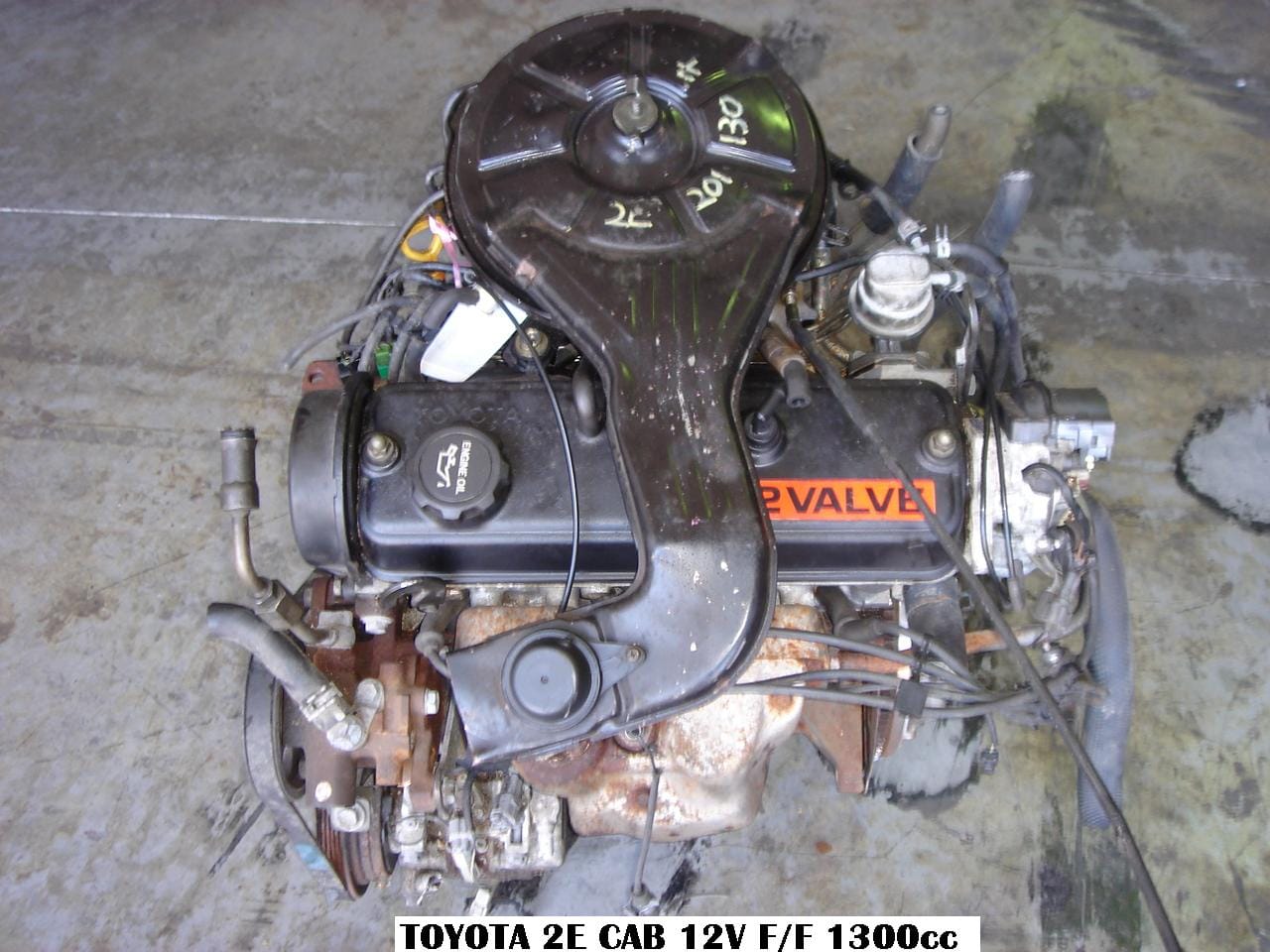Engine Purchasing Expert Tips on Choosing the Right Engine for Your Certain Requirements
Picking the ideal engine for your certain demands entails an intricate interplay of elements that go past mere horsepower numbers. By delving right into the ins and outs of power versus performance, reviewing fuel scores, and budgeting for long-lasting expenses, one can genuinely maximize their engine selection.
Power Vs. Efficiency: Finding the Equilibrium

When choosing an engine, it is crucial to strike a balance in between power and performance to satisfy your particular demands effectively. Power describes the engine's capacity to produce energy for propulsion, establishing variables like velocity, pulling capacity, and overall performance (Toyota Tazz Engine For Sale). On the various other hand, effectiveness connects to just how well the engine uses fuel to create power, affecting factors such as gas economic climate and ecological kindness
Achieving the appropriate balance in between power and effectiveness is essential since an engine that is too effective may eat excessive gas, resulting in greater operating expense and unnecessary pressure on the environment. On the other hand, an engine that prioritizes effectiveness over power might result in slow-moving performance, specifically sought after situations like lugging heavy tons or driving uphill.
To make a notified decision, take into consideration elements such as your common driving conditions, the designated use the lorry, and your personal choices. By assessing your requirements and priorities, you can select an engine that strikes the excellent equilibrium in between power and performance, ensuring ideal efficiency while reducing ecological impact and operating expense.
Recognizing Engine Size and Type

Furthermore, engine kind plays a crucial role in identifying the performance features of an engine. Typical engine kinds consist of inline engines, V engines, and rotating engines, each with its special benefits and disadvantages. The engine kind impacts aspects such as the engine's dimension, weight circulation, and power delivery. Recognizing the interaction in between engine dimension and type is vital in picking an engine that aligns with your particular requirements and priorities, whether it be power, performance, or an equilibrium of both.
Consider Your Lorry's Requirements
If you are looking for an engine for a heavy-duty truck that will certainly be made use of for towing, you will require an effective engine with high torque capacities. On the various other hand, if you are choosing an engine for a small car mostly made use of for city travelling, gas performance may be a much more important variable to consider.

Reviewing Fuel Effectiveness Rankings
Analyzing gas performance scores is a critical facet of choosing the ideal engine for your car, ensuring price financial savings and environmental sustainability. Fuel performance rankings, normally determined in miles per gallon (MPG) for gas engines or kilowatt-hours per 100 miles (kWh/100 miles) for electric engines, indicate exactly how much a car can take a trip on a certain amount of fuel or power. Greater MPG or lower kWh/100 miles worths indicate a lot more efficient engines, converting to lowered fuel costs and reduced carbon discharges.
Furthermore, contrast various engine alternatives within the exact same lorry class to recognize the most cost-effective choice. Factors such as engine size, weight, the rules of aerodynamics, and hybrid or electric abilities can all affect gas efficiency.
Budgeting for Long-Term Expenses
Tactically preparing for long-lasting expenditures is critical when choosing an engine, ensuring monetary sustainability over the automobile's lifespan. While the preliminary acquisition rate of an engine is a considerable factor, it is important to consider the long-term prices connected with maintenance, repairs, and gas usage. Selecting an extra fuel-efficient engine might have a higher upfront cost however can result in considerable financial savings over time. Normal upkeep, such view it as oil adjustments, filter substitutes, and tune-ups, is crucial to keep the engine running smoothly and effectively, minimizing the danger of pricey repairs down the line.
Additionally, researching the availability and expense of substitute components for the selected engine is important in spending plan planning. Engines with cost effective and readily offered components can considerably impact lasting maintenance expenses. Furthermore, taking into consideration the engine's toughness and expected life expectancy can assist prevent unforeseen substitute expenses in the future. By meticulously budgeting for these long-term expenditures and factoring them right into the decision-making process, individuals can select an engine that not only meets their prompt requirements yet likewise continues to be cost-effective throughout its lifespan.
Verdict
In conclusion, picking the appropriate engine for your certain requirements calls for stabilizing power and efficiency, comprehending engine dimension and type, considering your vehicle's demands, examining fuel efficiency ratings, and budgeting for long-term costs. By carefully considering these elements, you can make sure that you his comment is here select an engine that meets your needs and offers optimum performance for your car.
To better refine the choice process of an engine that strikes the optimal balance between power and efficiency, it is essential to dive into the ins and outs of recognizing engine dimension and type. Engine size refers to the overall quantity of air and gas that can be pressed through the engine cyndrical tubes. Usual engine types include inline engines, V engines, and rotary engines, each with its unique benefits and drawbacks. Comprehending the interaction between engine size and kind is crucial in picking an engine that aligns with your certain needs and priorities, whether it be power, effectiveness, or an equilibrium of both.
Gas effectiveness rankings, normally determined in miles per gallon (MPG) for fuel engines or kilowatt-hours per 100 miles (kWh/100 miles) for electric engines, show just how far an automobile can take a trip find out on a specific amount of gas or electricity.